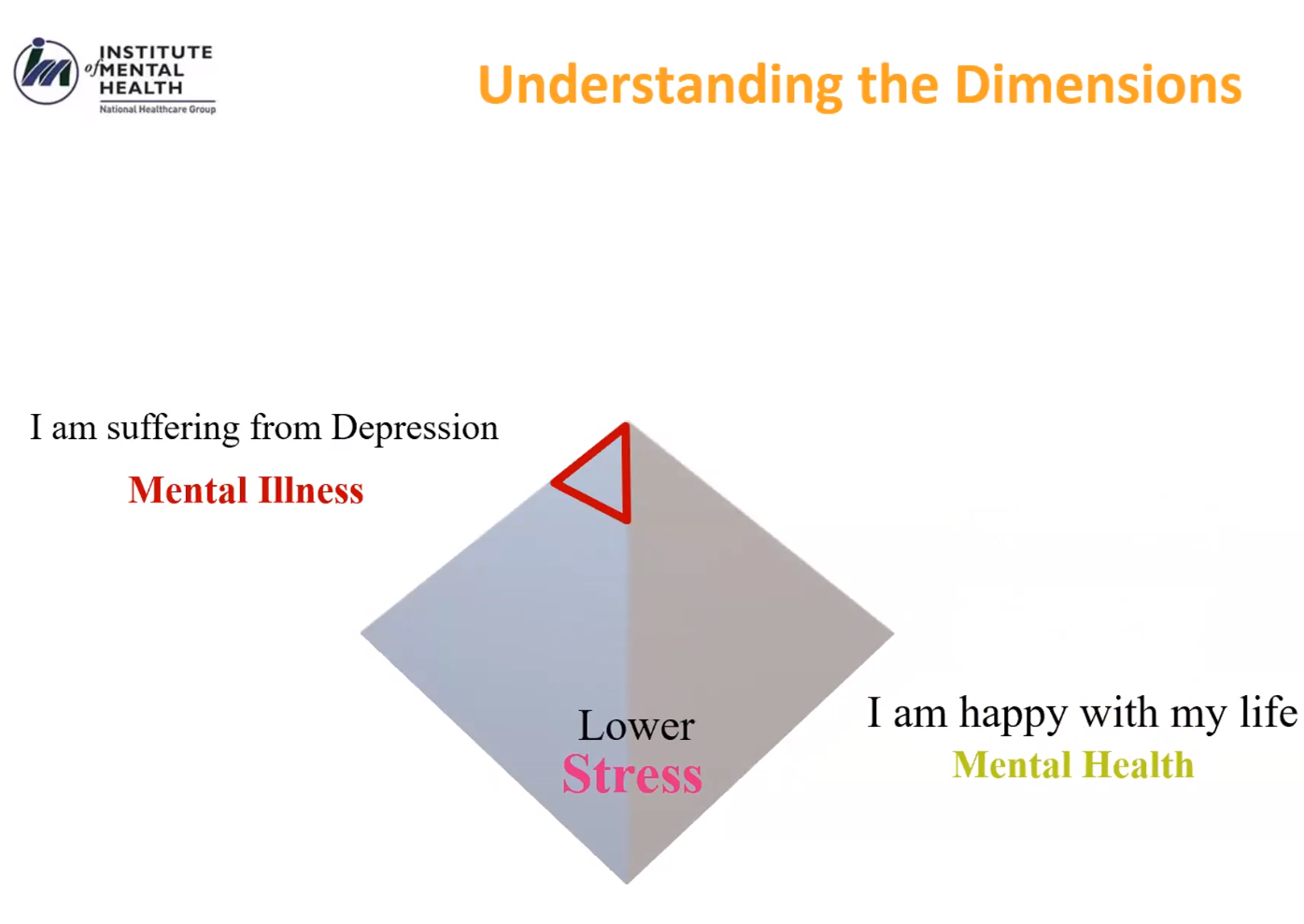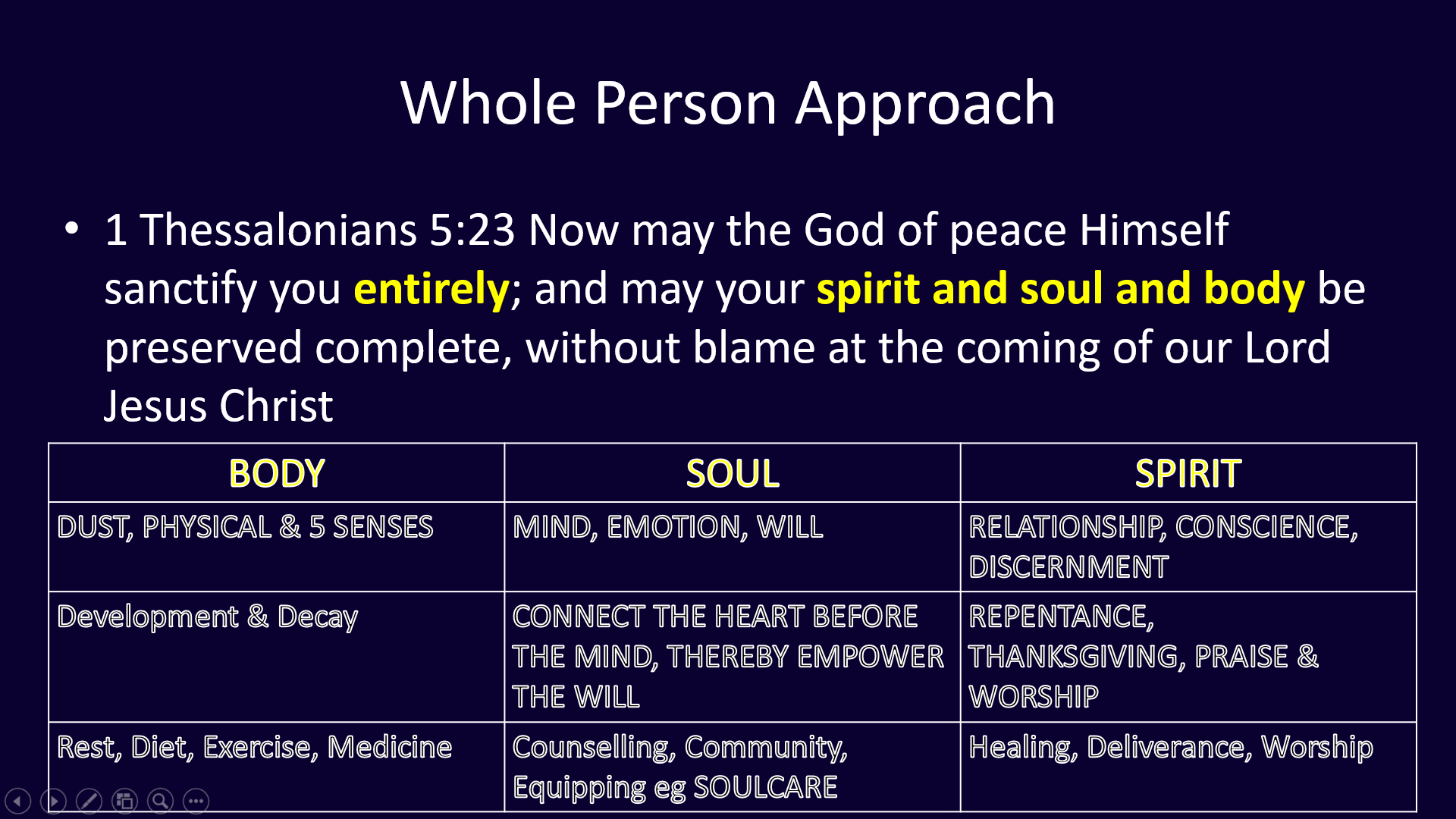Heartbreaking number seek help for kids with depression: Salt&Light Family Night
by Christine Leow // October 2, 2020, 1:42 pm

Globally, one in five is at risk of developing a serious mental illness like depression. Photo by Nate Neelson on Unsplash.
Not the heartache of divorce, nor the stress of exams, nor the shame of porn addiction. If numbers are anything to go by, the issue that weighs most heavily on the minds of parents in Singapore is depression in their kids.
Nearly 600 joined Zoom chat show Salt&Light Family Night on Tuesday (September 29) to learn about dealing with depression in children and youths. Of these, two in five were attending because they were concerned about a teen (13 to 17) in their lives, said participants in a poll during the two-hour session.
Top on the list of what they thought was causing the depression was low esteem (57%), followed by academic stress (52%) and a lack of meaning in life (38%).
On hand to shed light on the issue were panellists:
- Pastor Chua Seng Lee, Deputy Pastor of Bethesda (Bedok-Tampines) Church;
- Dr Daniel Fung, Chairman of the Medical Board of the Institute of Mental Health and President of the International Association for Children and Adolescent Psychiatry and Allied Professions; and
- Abigail Lee, Executive Director of Healing Hearts Centre, and President of the Association for Play Therapy (Singapore).
These were some of the questions that the panellists discussed.
How do we define depression?
Being unhappy is not clinical depression, said Dr Fung. Unhappiness is merely a response to problems in life.
Using a pyramid to explain the difference, he said that mental illness – the experience of a medical condition or mental disease – exists on one side of the pyramid while mental health – “our happiness with life” – exists on the other.

Instead of viewing mental illness as the tip of a pyramid with mental health as its base, Dr Daniel Fung says mental illness really should be seen as being on one face of the pyramid, with mental health on the other. Photo courtesy of Dr Daniel Fung.
Added Dr Fung: “Mental health affects the entire population – 100% of us have a mental health issue at one time or another. This is really dependent on what I call stress.”
Globally, one in five is at risk of developing a serious mental illness like depression.
The brain has an expected response to stresses or “mental health distress”. The lower the stress experienced, the happier the person. But “a little stress pushes you to perform better” as you learn and cope, he said.
When the problem persists or is more severe, the response may become a mental health problem which might require more help such as counselling. But evidenced-based treatment like psychotherapy is not yet necessary.
Mental illness, on the other hand, refers to “a brain that is not functioning well”. Globally, one in five has a risk of developing a serious mental illness like depression. In Singapore, that number is slightly lower at 13.9%.
“Mental illness needs treatment, in the same way you seek medical help if you are sick or have Covid-19,” said Dr Fung. “That’s why you need diagnosis and treatment.
“Treatment doesn’t all end up with drugs and medication. There are treatments that have to do with talking – it requires time, but can be done in a clinic or a community.”
Is there a spiritual component to depression?
Every mental health problem is a spiritual problem, said Pastor Chua.
“Why do I say that? Because we are all spiritual beings.
“Moses (Numbers 11:14-15) had a sense of worthlessness. Spiritual giants also struggle with mental health issues.”
“But the solution to spiritual problems is more than just deliverance. In some Christian circles, we are fond of casting out demons of depression, demons of many things. Life is more complicated than that.”
Instead, he advocated a whole-person approach that goes “back to biblical basis”. Quoting 1 Thessalonians 5:23, Pastor Chua talked about how a person is made up of body, soul and spirit that “interact with one another”.
“Bodily problems can affect our soul and, in turn, affect our spirit because they are all inter-connected. So, we cannot be too simplistic when dealing with mental illness.”
As a result, the whole person – body, soul and spirit – needs to be treated.

Every mental illness problem is a spiritual problem simply because we are all spiritual beings though a whole-person approach, rather than just a spiritual one, is required to treat something as complex as mental illness. Photo courtesy of Pastor Chua Seng Lee.
“The body needs to take medicine. The soul needs counselling and community support. The spirit needs to connect to God. We need to continue our worship and, in some cases, our repentance.”
“Find out more, grow in your understanding of this topic, and grow in your empathy and prayer.”
Depression is not a sign of spiritual weakness, he emphasised. Citing the example of Moses in Numbers 11:14-15, he said: “Moses was stressed and Moses had suicide ideation and a sense of worthlessness. Spiritual giants also struggle with mental health issues.”
Pastor Chua also debunked certain myths about depression – that the medicine prescribed may be addictive or that “all you need is faith” to overcome depression.
“We must avoid making spiritual discipline into a prescription for mental illness. For example, some people will tell you all you need to do is to read the Bible – three chapters a day and the demons will flee from you. That is not true.
“We need to lay hold of God for them until they can lay hold of God for themselves.”
“You need to know (the situation) more in-depth in order to be in a better place to help others. Ignorance is never bliss because, if you are ignorant and offer your advice, you will end up doing more damage.”
To parents and leaders in the church, Pastor Chua encouraged: “Acquire deep knowledge (of depression). Find out more, grow in your understanding of this topic, and grow in your empathy and prayer.
“We can grow in empathy by not belittling their problem. The pain that they are going through is very real for them. Grow in prayer. We need to lay hold of God for them until they can lay hold of God for themselves.”
This “preventive rather than corrective” approach – the latter being waiting for something to go wrong before responding – is more helpful.
How do I know if my child needs professional help?
Dr Fung shared five steps to ascertain if professional help is needed for a child with depression.
#1 Severity
How severe is the low mood?
#2 Persistence
How long does this low mood last?
#3 Pervasive
Is the child in such a low state all the time, or only on certain occasions?
#4 Impairment
Is the child able to function in school, with friends and at home?
#5 Explanation
Can you discern something in particular that brought on this mood? A lack of explanation for the low mood may be a sign that there is a need for medical help. “Clinical depression is sometimes hard to explain. It just occurs,” said Dr Fung.
How can we support a child who is depressed?
Lee suggested that parents and educators support children and teenagers with depression in these ways:
Search ourselves
Identify our emotions and thoughts about what our children are going through. Sort through the positive emotions – concern, nurture, care – and the negative ones –stress and anxiety.
“Help our child or teen to recognise and express what are they feeling.”
Then, when we approach our children, we are not “projecting that negativity upon them”.
Gary Koh, a family life educator and husband of Focus on the Family Singapore CEO Joanna Koh-Hoe, processes his feelings with his wife.
“She goes through the whole journey with me, ‘Am I thinking this because of this? Am I feeling like that because of this?’”
Say something
Get the issue out in the open. Instead of being afraid of triggering the child, approach the matter from a “posture of concern”.
Koh spent a decade as a school counsellor as well as a boarding school master living with the students. His advice for parents when talking to their children about their depression: Don’t panic.
If you overreact, the child “will shut down because they will think: I can’t talk to my parents because they go into this (mode of) ‘I know what you should do, this is how you should behave’”. This doesn’t breed good communication.”
Express thoughts and feelings
Parents are encouraged to share what they’re feeling even as they want their children to share, so “it doesn’t come across like an interrogation”.
“Help our child or teen to recognise and express what they are feeling, what they are thinking, what is really happening inside,” said Lee.
This also helps them increase their level of self-awareness.

Salt&Light Family Night team Carol Loi, Alex Tee, Edric Sng and Christine Leow, with guests Dr Daniel Fung, Abigail Lee, Ps Chua Seng Lee and Gary Koh, who shared tips on how to manage depression in youths and children.
For parents whose children are reticent or even non-verbal, Lee encouraged “understanding what works for your kid in such a moment”.
“We need to think about the support that the family will need.”
Some kids need physical activities such as exercise to break the ice. Others simply need their parents to sit with them, (“knowing that you are with me is sufficient for now”) before they are ready to open up.
To help them express themselves, Lee said there are feelings charts with emojis that can be used. This is particularly helpful with younger children.
“They can indicate how they are feeling via the images,” said Lee.
“Words were very difficult for me as a child and teenager growing up. Something my parents used with me was, ‘Name me a song that shows me how you feel’. Then, based on the lyrics, they knew exactly how I was feeling.”
Helping children to express their feelings also allows parents to validate those feelings.
Explore coping strategies
Lee encouraged parents to ask their children for “some things that were helpful” in the past that they can explore now to “get these yucky feelings and thoughts out so they don’t stick with us”.
One strategy she shared was downsizing big thoughts into smaller practical steps that can be practised.
“Our cell groups must be ones that can support families with children who are going through difficult journeys.”
Other ways of supporting children with depression include involving the school. Said Koh: “Our children go to church once a week, they don’t see the psychiatrist every day. But they are in school every day.
“Teachers and counsellors are going to be your hands and feet, the support structure that you must not eliminate.”
Lee also encouraged parents to find support systems for themselves.
Pastor Chua agreed: “We need to think about the support that the family will need. It’s important for local churches to build caring communities. Our cell groups must be ones that can support families with children who are going through difficult journeys.”
How do we help our children develop mental strength?
Lee encouraged building a foundation for children to learn resilience by giving them plenty of encouragement.
“When we seek to extend genuine care and concern, when we seek to encourage and build up our children, they experience that authenticity. Not only does it open them up to receive from us, it also opens them up to learn from us.”
Another way is to bond is through games. She challenged parents to “find cooperation games that you can play along with your kids”.
“When everybody cheers together (when they win), what it does is that it increases your happy hormones.
“The only way you can be resilient is if you fail. You need to fail in life so you can stand up again.”
“And when you are experiencing that together with your children, it increases the bonding chemicals which make us feel we are so connected and in sync.”
When the children become receptive, she then advocates exercises such as deep breathing, as well as allowing children to “sit with the feeling” instead of downplaying their negative emotions or immediately wanting them to get out of it.
“This builds resilience because (they can say), ‘I’ve experienced this before, I’ve managed it, I’ve learnt to overcome it. The next time it happens when I grow up, I can do this again’.”
Lee also advocates role-modelling and parents sharing how they have overcome difficulties as a way of exploring coping strategies together.
Added Dr Fung: “Games are a good way to train children in successful failure. The only way you can be resilient is if you fail. You need to fail in life so you can stand up again. Failure is the mother of success.”
How can we help kids who feel they cannot meet society’s expectations?
Asking how “realistic are your expectations” is a good start, said Lee. Many have an “all or nothing kind of thinking”.
“(They say), ‘Everybody is doing so well except me. Everybody is so good, I’m so bad. All my other siblings are perfect, I‘m the lousy one.’”
To counter this, she goes through an exercise where she draws two circles – one with only plus signs and one with only minus signs.
“Then I ask them to name someone with all pluses.”
Invariably, superhero names will come up. She then helps the children realise that no real person has just pluses. Everyone has pluses and minuses.
“What does my chart look like? How can I start to strengthen (my pluses)? The exercise makes strengths and weaknesses very realistic for them. How can we then calibrate their expectations?”
Kids sometimes threaten suicide causally. Should we take them seriously?
All three panellists agreed that any time someone verbalises suicidal ideations, they are to be taken seriously.
Said Pastor Chua: “When a child says he wants to take his life, it is a call for help, a cry from their heart and that’s why they are asking for an adult to come in. It’s an invitation for you to come in and process things with them.”
The greater concern, said Dr Fung, is that many who actually commit suicide never talk about it, which is why many suicides come as a surprise.
Lee agreed. “If they are talking, that’s a relief because at least they are saying something.”
“Never underestimate their personal relationship with God and the truth that God can speak to them.”
When the child does talk about suicide, Pastor Chua cautioned against being over-excited or alarmed. Instead, parents can encourage their children to “tell me more”.
Dr Fung encouraged reflecting the child’s emotions instead of reacting to the suicidal ideation – “sounds like you are not very happy and not feeling very good about yourself” – as a starting point for conversation.
Added Lee: “Don’t shy away or be afraid to ask questions, ‘So are you thinking of harming yourself? Have you thought about plans?’
“It’s not about planting ideas in their heads. It’s about wanting to hear where they are coming from and finding out what is the underlying need when they are coming to you and saying such things.”
This will allow for conversations about the sanctity of life and God’s plan for them.
Said Lee: “Never underestimate their own personal relationship with God and the truth that God can speak to them.
“Having them experience and encounter God and knowing that ‘I have a God who created me’ and ‘I have a purpose in life and a role to play in this Kingdom of God’s’ does provide a lot of clarity and sets that direction and that tenacity to move forward.”
Added Koh: “You can give them hope with the perspective: How can I help someone? Maybe I am here not just for myself.
“We can process ‘What does it mean to live for God’ into bite-sized (actions) such as ‘I can help this person, I can do that’. Give them one ounce of hope that they can start acting on. One step, then the next step.
“It’s about seeing something bigger than yourself.”
How can we support a child who has attempted suicide?
Dr Fung shared 5Fs.
Family
The family, he said, needs to “gather around the child” instead of considering him a “black sheep”.
Friends
Having friends to be around is important, especially for teenagers.
The connectivity with friends is something even family ties cannot beat at this age.
Fun
“Bring the fun back in life,” said Dr Fung.
For children who enjoy co-curricular activities, they should not be withdrawn from them just because they are struggling with depression or going through a difficult time preparing for exams.
Future
This refers to the meaning and purpose that children find in the things that they do.
“The questions of life can only be answered by the Life-giver Himself.”
To this, Pastor Chua added: “There are good reasons to live. The questions of life can only be answered by the Life-giver Himself.
“Talk to God.
“The chief end of man is to glorify God and to enjoy Him forever.”
Fellowship
Pray for the children and pray with them.
Tap on the Word of God and the fellowship of Christians.
Lee also talked about bringing in external support systems such as pastors and youth leaders to explore the answer to these questions together.
What encouragement can you give parents struggling with children with depression?
Dr Fung had 3Rs for parents.
Role
Know your role as a parent and be prepared for that role to evolve over time. Be role models as well.
Rules
Establish rules and routines at home because it gives the children a “steady foundation to grow up in”.
Relationship
Have a relationship with your children and the greater community in church to draw strength from one another and find help.
“We are not defined by our sickness or by our failures or challenges. We are defined by God.”
Drawing from her own experience, Lee encouraged: “Start somewhere. It’s never too late.
“My parents never learnt to reach out to me until I was in my late teens. They were quite elderly by then but they started somewhere.”
Added Pastor Chua: “It’s the brave who ask for help. If you are struggling, don’t struggle further, ask for help.
“We feel like our children’s problems define them.
“That’s a lie from the devil. We are not defined by our sickness or by our failures or challenges. We are defined by God.”
Where to get help
- Mental Connect
- Care Corner Counselling Centre
- Fei Yue Counselling Centre
- Focus on the Family Singapore
- ThriveSg
- Wesley Counselling Centre
- National Care Hotline 6202 6868
- Samaritans of Singapore (SOS) (24 hours) 1800 221 4444
- Institute of Mental Health (24 hours) 6389 2222
- Singapore Association of Mental Health (SAMH) Mon – Fri 9am – 1pm, 2pm – 6pm
1800 283 7019
MORE STORIES ON BATTLING DEPRESSION AND HAVING RESILIENCE:
He tried to run away, but God taught this ultra-marathoner to run from depression instead
We are an independent, non-profit organisation that relies on the generosity of our readers, such as yourself, to continue serving the kingdom. Every dollar donated goes directly back into our editorial coverage.
Would you consider partnering with us in our kingdom work by supporting us financially, either as a one-off donation, or a recurring pledge?
Support Salt&Light



